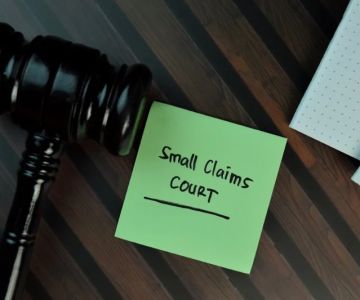
- 1. What Are Tenant Rights?
- 2. Common Tenant Rental Disputes
- 3. Legal Protections for Tenants in Rental Disputes
- 4. Steps to Take in a Tenant Rental Dispute
- 5. How to Resolve Tenant Rental Disputes
- 6. When to Seek Legal Help for Rental Disputes
1. What Are Tenant Rights?
Tenant rights refer to the legal protections granted to individuals who rent or lease a property. These rights are designed to protect tenants from unfair treatment and ensure that they live in safe and habitable conditions. Tenant rights cover a broad range of issues, from security deposits and rent control to eviction procedures and privacy protections. Understanding your rights is essential for navigating rental agreements and disputes with landlords.

The Lohman Law Offices, P.S.C.
LouisvilleJefferson CountyKentucky
730 W Market St 4th floor, Louisville, KY 40202, USA
2. Common Tenant Rental Disputes
Rental disputes are not uncommon, and they can arise from a variety of issues. Some of the most common tenant-landlord disputes include:
- Security Deposit Disputes: Disagreements often occur regarding the return of security deposits, especially if the landlord claims that the tenant caused damage to the property.
- Unlawful Eviction: If a landlord tries to evict a tenant without proper legal cause or without following the correct procedures, it can lead to a dispute.
- Habitability Issues: A tenant might experience problems with the condition of the rental property, such as plumbing issues, mold, or pest infestations. Tenants have the right to a safe and habitable living environment.
- Rent Increases: Disputes over rent increases often occur, especially if the landlord raises the rent in violation of local rent control laws or without proper notice.
3. Legal Protections for Tenants in Rental Disputes
Tenants have several legal protections that can help resolve disputes with their landlords:
- Right to Privacy: Landlords must respect a tenant’s right to privacy and cannot enter the rental unit without proper notice, except in emergencies.
- Right to Safe and Habitable Conditions: Tenants are entitled to live in a rental property that meets basic health and safety standards, including adequate plumbing, heating, and structural integrity.
- Protection from Retaliation: If a tenant reports a violation of housing laws or makes a formal complaint, the landlord cannot retaliate by increasing rent, reducing services, or attempting eviction.
- Eviction Protections: Eviction must follow a legal process, and tenants cannot be evicted without proper notice or legal justification. Tenants also have the right to challenge an eviction in court.
4. Steps to Take in a Tenant Rental Dispute
If you find yourself in a rental dispute, it’s important to take the following steps to protect your rights:
- Review Your Lease Agreement: Always start by reviewing your lease or rental agreement to ensure you understand the terms and conditions regarding rent, maintenance, and eviction procedures.
- Document Everything: Keep detailed records of all interactions with your landlord, including written correspondence, repair requests, and payments. This documentation will be helpful in resolving disputes.
- Communicate with Your Landlord: If a problem arises, communicate with your landlord in writing, stating your concerns and requesting a resolution. This provides a record of your attempts to address the issue amicably.
- Seek Mediation: In some cases, mediation services may help resolve disputes without going to court. Many local governments or housing authorities offer free or low-cost mediation services.
5. How to Resolve Tenant Rental Disputes
There are several ways to resolve tenant rental disputes effectively:
- Negotiation: Direct negotiation with your landlord is often the quickest and least costly method of resolving disputes. Be clear about your expectations and willing to compromise where necessary.
- Mediation: Mediation involves a neutral third party who helps facilitate a resolution. Mediation can often prevent escalation and avoid a costly court case.
- Small Claims Court: If negotiation and mediation fail, you may need to take the dispute to small claims court. This is an option for resolving financial disputes, such as security deposit issues or unpaid rent.
6. When to Seek Legal Help for Rental Disputes
If you are unable to resolve a dispute with your landlord on your own, it may be time to seek legal assistance. Legal professionals can help you understand your rights, assess your case, and provide representation in court if necessary. At Barber Law Hub, we specialize in tenant rights and can provide expert legal advice for anyone facing a rental dispute. Whether you need help with an eviction notice, security deposit issues, or habitability problems, we are here to ensure your rights are protected.







 Global Immigration Legal Team4.0 (87 reviews)
Global Immigration Legal Team4.0 (87 reviews) NYLPI3.0 (10 reviews)
NYLPI3.0 (10 reviews) The Law Office of Anthony Sharnov, PC5.0 (2074 reviews)
The Law Office of Anthony Sharnov, PC5.0 (2074 reviews) Lee Law Firm, LLC4.0 (47 reviews)
Lee Law Firm, LLC4.0 (47 reviews) Lavery, Selvaggi & Cohen, P.C.3.0 (12 reviews)
Lavery, Selvaggi & Cohen, P.C.3.0 (12 reviews) Law Office of Angela Barker LLC4.0 (25 reviews)
Law Office of Angela Barker LLC4.0 (25 reviews) How to Avoid Common Legal Mistakes When Buying a Home – Expert Advice
How to Avoid Common Legal Mistakes When Buying a Home – Expert Advice Law Made Simple: Understanding Child Custody Laws in Simple Terms
Law Made Simple: Understanding Child Custody Laws in Simple Terms How to Expunge a Criminal Record – A Complete Guide
How to Expunge a Criminal Record – A Complete Guide How to Choose the Right Lawyer for Your Case – Expert Legal Advice
How to Choose the Right Lawyer for Your Case – Expert Legal Advice Your Rights During a Police Stop – Expert Legal Advice for Citizens
Your Rights During a Police Stop – Expert Legal Advice for Citizens A Step-by-Step Guide to Writing a Will – Expert Legal Advice
A Step-by-Step Guide to Writing a Will – Expert Legal Advice